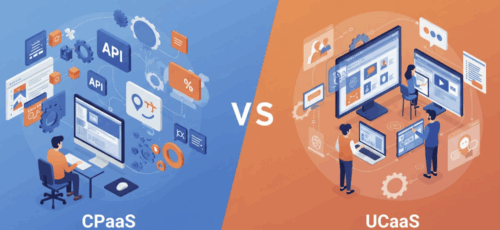In the age of legacy telecom, phone service was a relatively simple concept. After securing a phone number from a leading service provider, you were then able to place and receive calls. With today’s VoIP and digital technologies, however, making and receiving calls are different in nature. To fully understand how modern VoIP calling works, it is essential to start with the basics and see why some providers are better suited to deliver calling support than others.
VoIP Origination = Inbound calls
Call origination refers to incoming calls. The wording leads many to think the opposite because you are not originating the call. However, since your phone number is held by your provider, they handle the incoming call and then route it on to you. The name simply refers to the act of handling the originating call and delivering it to you. You will need an allocated phone number to receive origination service.
VoIP Termination = Outbound calls
Call termination is often considered to be the opposite of call origination because the direction of the paths is reversed. VoIP Termination is the act of delivering the outbound call to the number dialed. Unlike origination, you don’t have to have a phone number in order to terminate (send) calls.
Since the services are different, VoIP origination providers are not always the same as VoIP termination providers. In fact, it comes down to reaping the benefits of each service, while knowing exactly what you need for daily communication protocols. Understanding the detailed aspects each service provider offers also plays an instrumental role in selecting the right carrier.
There are hundreds of VoIP origination and termination providers to choose from, each marketing themselves as the most cogent one in providing VoIP services. Though these providers offer services ranging from standard to premium, there are core criteria to consider that will lead you to the one that stands apart.
Tips to Evaluate VoIP Origination Providers
- Quality. The primary measure of an origination provider is quality. Losing a call from a customer, or constantly having to ask them to repeat themselves is a business risk. Sound quality can be negatively affected by competing traffic on the line. Poor quality can be due to the VoIP origination provider, but also by your internet connectivity and internal communication equipment, so it is important to work with your provider to understand the other factors that can impact quality.
- Functionality. Features and functionalities will vary from one provider to another. However, there are some core functions you should have regardless of the provider you choose. These functions include E911, Caller ID Name, calls routing to virtual phone numbers, as well as storage and backup services. Another key function are toll-free numbers, which make it easy to connect with and retain customers.
- Flexibility. One of the key benefits of VoIP over traditional PSTN is the ability to scale quickly and easily based upon business needs. This flexibility may be as simple as securing a handful of new DIDs or downsizing international numbers. When working with a provider, scaling services should be streamlined, with no penalties or lengthy contract terms.
- Availability. In case of an emergency, the VoIP origination provider will need to set up backup routing options so that calls can still be answered in the event of a server crash or power cut. This is an important question to ask organization providers in the evaluation process.
- Data Centric Management. Your internal systems need to be able to route an incoming call based on its data. This data is passed by the VoIP provider, so it will need to be rich enough for your systems.
Tips to Evaluate VoIP Termination Providers
- Value. When selecting a termination provider, it is not just about which provider offers the most competitive price. Quality and value for the money should be top of mind. Your termination provider decides which routes your calls go over, pays for that service, and bills you a markup. Low cost routes are often low quality. Reading online reviews or participating in a trial period, if available, are two ways to do a quality assessment of the VoIP termination provider before making the commitment.
- Access and Controls. Look for a VoIP termination provider that gives you robust admin privileges so you can manage and have insight into your call routings. For example, in SIP calls, the more data you have passed through the provider’s gateway, the better you will be able to route and manage calls once you receive them. Work with the prospective provider to define your needs, which will then help you determine the level of access control you need.
- Availability. Choose a provider that lets you create backup and restore services in real time or in the event your primary system fails (power outage, server failure, etc.). This way, you can quickly get back on your feet and it will be business as usual.
- Security. Outbound toll fraud is a serious threat to your organization. Ensure the termination provider offers customizable restrictions to outbound call access. IP authentication, which you can employ if your users are connecting from behind a static IP address, is one way to add a level of security. Rate and destination restriction also limit the damage fraudsters can inflict with your account credentials by blocking high-cost calls.
If you are struggling to find one provider that offers everything you need in origination and termination, you can rely on different carriers for each service. Some providers are better at one than the other, but for the sake of convenience of billing and account management, if you are able to select one provider that meets all your needs, it will be easier to navigate and scale processes in the long run.
Flowroute’s inbound SIP trunking provides unlimited concurrent call capacity. With no limitations or restrictions, you can do away with capacity planning. As your volume increases, new instances are dynamically created to help you scale your voice services.
We also deliver outbound call audio over the shortest path possible to increase call quality and lower call costs locally and internationally. We ensure you always have a clear, reliable, and high-quality connection with our cloud-optimized communications services.






